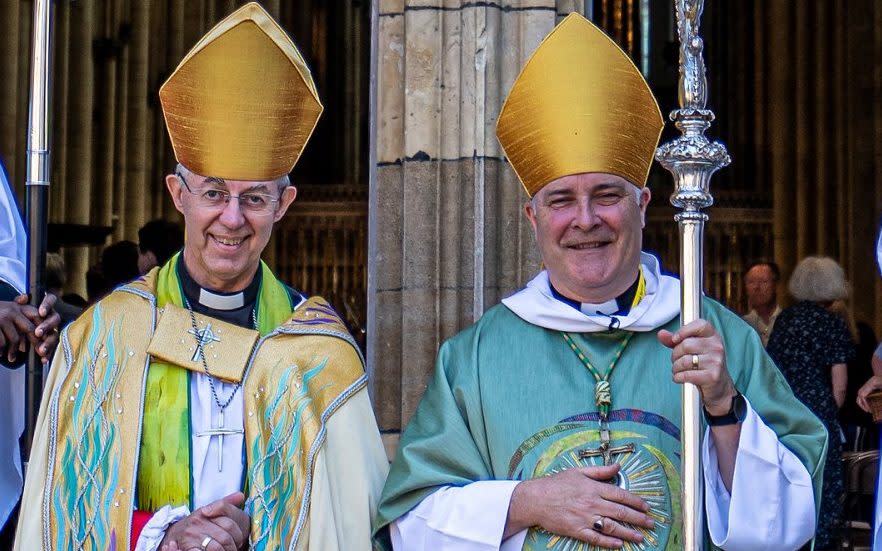Archbishops claim Muslim communities at risk over new extremism definition

- Oops!Something went wrong.Please try again later.
The Archbishops of Canterbury and York have claimed the Government’s planned new definition of extremism risks “more division” which could “disproportionately” target Muslim communities.
In a joint statement, the Most Reverend Justin Welby and the Most Reverend Stephen Cottrell said labelling a “multi-faceted problem” as hateful extremism could vilify the wrong people and increase divisions within communities.
Their comments come ahead of a new definition of extremism to be unveiled by Michael Gove, the Communities Secretary, which will enable universities, councils and other public bodies to crack down on a wider range of Islamist and Right-wing groups.
It will enable the Government and public bodies to bar groups from venues or campuses and block funding if they are judged to be promoting extremist ideology that “undermines” British values and democracy.
Mr Gove is expected to use parliamentary privilege to name groups that will be captured by the new definition and announce the creation of a new counter-extremism unit tasked with naming groups and individuals which breach the new definition.
Rishi Sunak earlier this month used an address to the nation outside Downing Street to warn of “extremist disruption” and “forces here at home trying to tear us apart” after a surge in anti-Semitic and anti-Muslim incidents following the October 7 Hamas attack on Israel.
However, the Church of England’s two most senior clerics have claimed the new definition of extremism may threaten freedom of speech, worship and protest.
They said: “How our leaders respond to this is far too important for a new definition of extremism to be its cure. Instead of providing clarity or striking a conciliatory tone, we think labelling a multi-faceted problem as hateful extremism may instead vilify the wrong people and risk yet more division.
“The new definition being proposed not only inadvertently threatens freedom of speech, but also the right to worship and peaceful protest - things that have been hard won and form the fabric of a civilised society.
“Crucially, it risks disproportionately targeting Muslim communities, who are already experiencing rising levels of hate and abuse.”
The archbishops continued: “We are concerned - like so many others - by its implications for public life.
“We join calls for the Government to reconsider its approach and instead have a broad-based conversation with all those who it will affect.
“The UK has a proud history of welcoming people from all walks of life and celebrating diversity. We are a community of communities.
“Our leaders should cherish and promote that - and pursue policies that bring us together, not risk driving us apart.”

